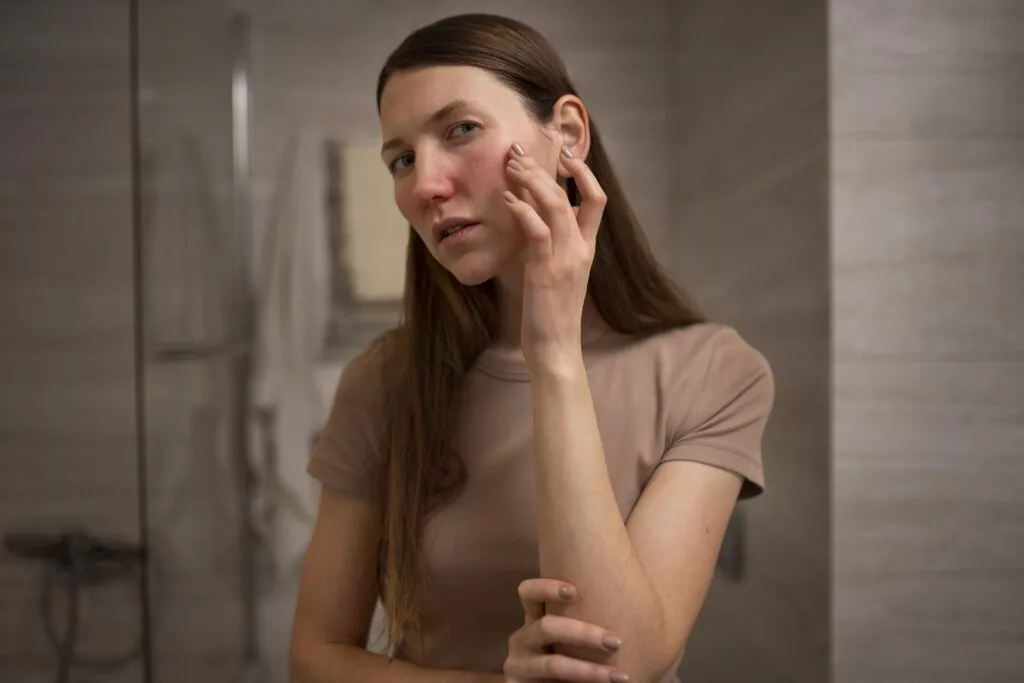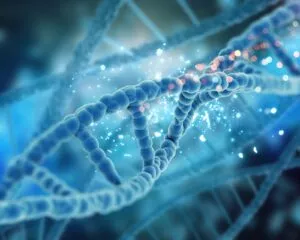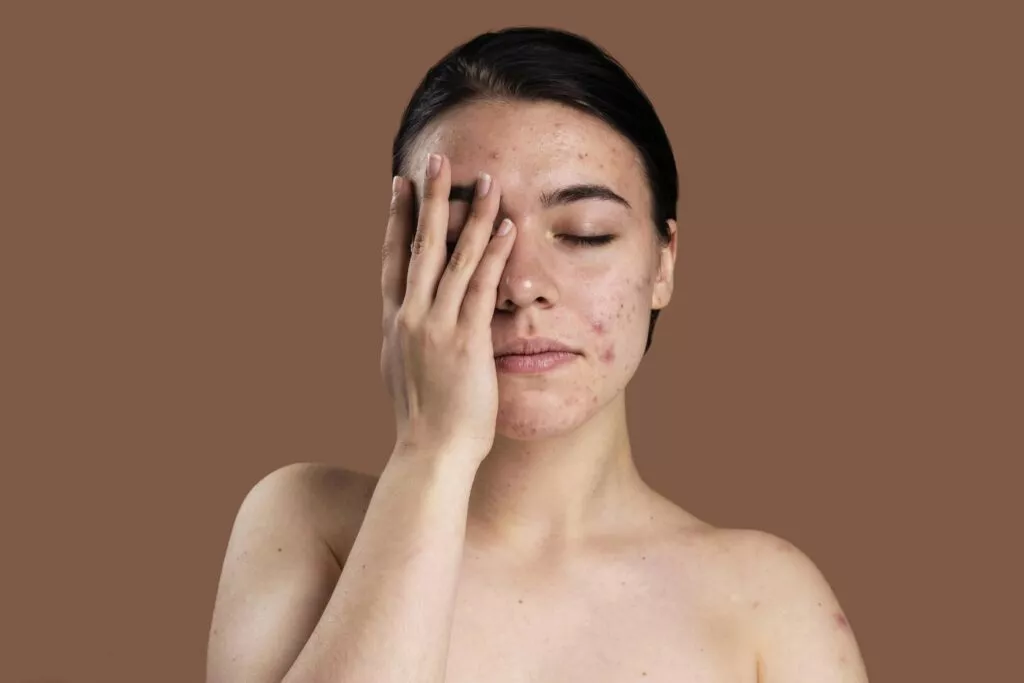Studies have found a prevalence of 17% to 27% of women with PCOS suffering from acne.

Why do women with PCOS are prone to acne?
- Women suffering from PCOS usually suffer from increased levels of male sex hormones like androgens (eg. testosterone) in the body, commonly referred to as Hyperandrogenism. The prime cause being – Insulin Resistance and Hormonal imbalances.
- Normally, the ratio of Leutinizing hormone (LH) to Follicle stimulating hormone (FSH) i.e. ratio of LH: FSH is well balanced. But in PCOS, however, the levels of LH increase and FSH gets depressed.
- On the other hand, Insulin Resistance develops due to improper utilization of insulin and thus leads to Hyperinsulinemia. These high levels of insulin along with high levels of LH enhance the production of androgens like testosterone and thus lead to Hyperandrogenism.
- Peripheral 5α-reductase activity also increases. This is the enzyme that converts testosterone to dihydrotestosterone (DHT), which amplifies androgen action. These androgens also serve as substrates for sebaceous gland enzymes. Increased sebum production correlates with the severity of clinical manifestations of acne.
- Hyperandrogenism favors the development of acne by increasing sebum production but mainly by altering the sebum lipid profile (Carmina E. et al.).This alteration in the sebum profile thus induces cutaneous (skin) dysbiosis which further leads to hyperkeratinization, inflammation, and acne, accelerating the follicular damage.
How can you treat the acne?
- The unblemished and immaculate skin requires proper care from inside as well as outside. This could be done by consuming nutritious and healthy food regularly coupled with a disciplined lifestyle.
- Some ways are exercising regularly, losing or maintaining a normal weight, and eating a well-balanced diet. This would help, aid and lessen the acne.
- The proper diet should include low carbs (mostly complex), high protein, and moderate fat (omega 3s, MUFAs). Foods high in sugar, salt, saturated, and transfat, processed and packaged foods may aggravate and worsen the acne.
- OCPs (Oral contraceptive pills) like estroprogestrins or anti-androgens may also be advised for suppressing excess androgens. Metformin therapy is also recommended for addressing Insulin Resistance.
- Follow a proper skin care regimen advised by a dermatologist and consult them before applying any products and creams.
- Microdermabrasion is the minimally invasive epidermal resurfacing procedure used to treat uneven skin tone/texture and or acne scars. It involves crystals propelled against the skin under the control of a handheld vacuum system which causes gentle mechanical abrasion to the skin, which ultimately removes the stratum corneum layer of the epidermis. As part of the wound healing process, new epidermis forms with enhanced cosmesis (Muneeb Shah et al.)
- Chemical peeling mostly Salicylic Acid peeling treatment is also suggested by doctors to remove the scars and regenerate the normal skin. However, it should be strictly done under a doctor’s guidance.

In conclusion, discussing PCOS with your doctor can help you better understand your condition and take proactive steps to manage your symptoms. By asking the right questions, you can work with your doctor to develop a treatment plan that works best for you. Remember to be honest and open with your doctor about your symptoms, concerns, and goals. With the right information and support, you can successfully manage your PCOS and live a healthy, fulfilling life.
Here are some other Blogs that you should check

Foods to increase the breast milk
Breastfeeding is an extremely crucial period for both mother and baby. It provides the baby with essential nutrients and antibodies while helping the mother bond

How to improve Hemoglobin during Pregnancy
Pregnancy is a time of profound change in a woman’s body, with various physiological adjustments necessary to support the growing fetus. One crucial aspect of

Top 10 Mistakes in Weight Loss and Intermittent Fasting.
There is a lot of talk about Intermittent fasting these days. Intermittent fasting has become a popular and effective strategy for many people aiming to

How to Balance Hormones for Weight loss
When it comes to weight loss, most people often focus on diet and exercise. They meticulously count calories, track macros, and spend hours at the

Difference between PCOS & PCOD
Polycystic Ovarian Syndrome (PCOS) and Polycystic Ovary Disease (PCOD) are two terms often used interchangeably, but they represent distinct conditions with unique characteristics. While they

Role of Antioxidants in Gut Health
In our body’s complex system, the gut plays a central role in orchestrating various functions essential for overall health. Recent breakthroughs in scientific research have

